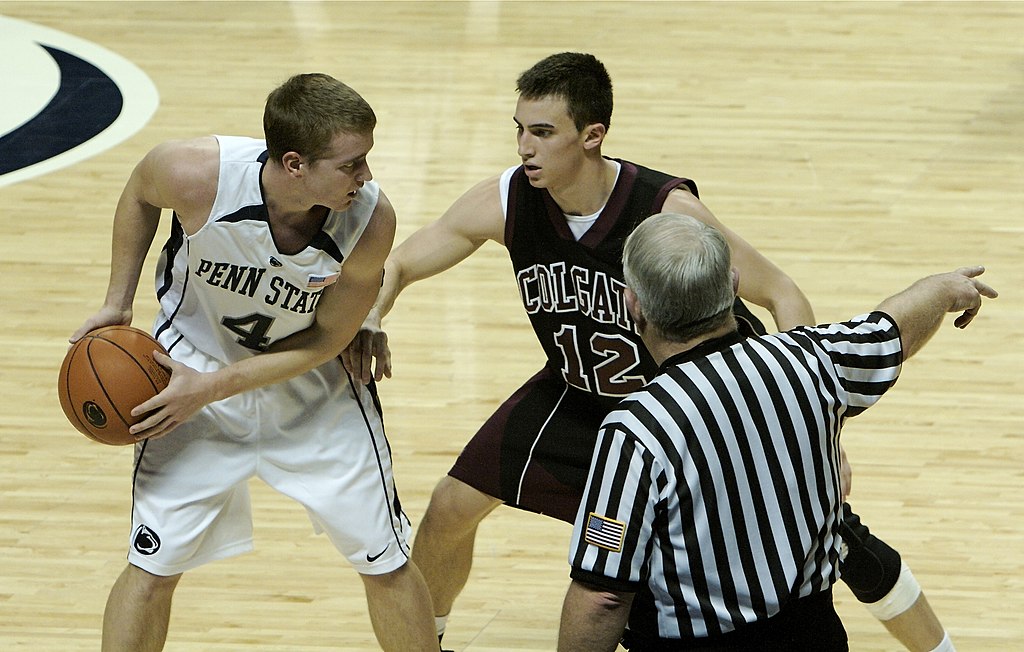
Otto Barenberg is a student at Harvard Law School and the Digital Director of OnLabor.
In today’s news and commentary, an NCAA settlement would allow revenue-sharing and direct payments to college athletes; the UAW invokes Cemex in its Mercedes election challenge; and Biden moves to secure a Democratic NLRB majority through 2026.
Last week, the National Collegiate Athletics Association (NCAA) proposed a historic $2.75 billion settlement that, for the first time, would establish revenue-sharing in college athletics and allow schools to pay athletes directly. The agreement, which must be approved by a U.S. District Court judge in California, marks the NCAA’s attempt to resolve three pending antitrust lawsuits that allege the league unlawfully denied athletes compensation for the commercial use of their names and likenesses. The NCAA’s revenue-sharing scheme includes a commitment to pay athletes 22 percent of the league’s media contract revenue, well below the 50 percent average across professional sports.
The settlement comes amid intense debate over whether college athletes are misclassified as students, rather than employees, for purposes of labor and employment law. In March, for instance, Dartmouth College refused to bargain with its men’s basketball team after they voted to become the first group of college athletes to unionize. And a pending Fair Labor Standards Act case before the Third Circuit Court of Appeals alleges the NCAA illegally denied athletes minimum wage. By permitting revenue-sharing and direct payment of college athletes, the antitrust settlement may undermine the NCAA’s longstanding claim that athletes are not employees under federal law. As law professor Anne Marie Lofaso told Bloomberg Law, “the NCAA and schools have built this wall between employment status and student status for the players,” but after the settlement, “I won’t say the wall is down, but it’s extremely weakened.”
On Friday, the United Auto Workers (UAW) filed objections to Mercedes-Benz’s “relentless anti-union campaign,” asking the National Labor Relations Board (NLRB) to set aside its May 17 unionization defeat at the German automaker’s Alabama plants. Although 70 percent of Mercedes employees signed UAW cards in the lead up to the election, only 44 percent voted in favor of unionizing. The union argues numerous unfair labor practices (ULPs) unlawfully eroded its support, including coercive captive audience meetings, suppression of pro-union speech, firings of UAW supporters, drug tests targeted at pro-union workers, and “inflammatory appeals to racial prejudice.” In its challenge, the UAW invoked Cemex, the seminal Board decision from last August that requires employers to bargain when they commit nontrivial ULPs during the “critical” preelection period and the union once had a card majority. Although the UAW asked only for a new election in its filing, the Board may nonetheless issue a bargaining order under the Cemex standard.
President Biden renominated NLRB Chair Lauren McFerran for a third five-year term in the hopes of securing a Trump-proof Democratic majority on the Board through 2026, when Member David Prouty is set to vacate his seat. McFerran’s current term expires in December. If the Senate fails to confirm her renomination and Biden loses the presidential race, the Board could have a Republican majority in early 2025. Biden also nominated Joshua Ditelberg, a Chicago-based labor lawyer at Seyfarth Shaw LLP, to fill a Republican seat vacated by John Ring, the former Chair of the Trump Board. The White House plans to advance the Democratic and Republican nominees as a package.






Daily News & Commentary
Start your day with our roundup of the latest labor developments. See all
February 18
A ruling against forced labor in CO prisons; business coalition lacks standing to challenge captive audience ban; labor unions to participate in rent strike in MN
February 17
San Francisco teachers’ strike ends; EEOC releases new guidance on telework; NFL must litigate discrimination and retaliation claims.
February 16
BLS releases jobs data; ILO hosts conference on child labor.
February 15
The Office of Personnel Management directs federal agencies to terminate their collective bargaining agreements, and Indian farmworkers engage in a one-day strike to protest a trade deal with the United States.
February 13
Sex workers in Nevada fight to become the nation’s first to unionize; industry groups push NLRB to establish a more business-friendly test for independent contractor status; and UFCW launches an anti-AI price setting in grocery store campaign.
February 12
Teamsters sue UPS over buyout program; flight attendants and pilots call for leadership change at American Airlines; and Argentina considers major labor reforms despite forceful opposition.